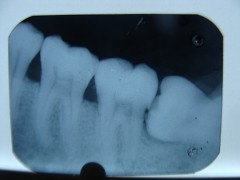Healthier without Wisdom

It was the 10th injection of anesthesia into my mouth, and I could still feel the dentist’s tools trying to pull my wisdom teeth. Thankfully, by the time the anesthesia was getting in, my wisdom was getting out.
To get to this point, I had to wait six months in line to get an appointment with a dentist from a nonprofit organization.
Until I was 22 years old, if I was sick or if I just needed blood test, I would go to a nice clinic or to a doctor my family knew. Getting ill wasn’t an issue at all: the private health care my parents provided me was more than enough.
Then, 3 years ago, everything changed. For many reasons, I no longer had private health care. If sick, I would have to get in line with the 80% of the Brazilian population who rely only on public hospitals provided by the Brazilian government.
Every Brazilian college student studying health issues praises SUS, the Portuguese acronym for Unified Health System. Created in 1988, it provides public health care for every person in Brazil. The idea is simple: no matter who you are, where you are from or how much money you have — if you’re sick, you can go to any public hospital to receive treatment.
Obviously, that is not how it really works.
Public hospitals are overloaded with various ill people. Their illnesses range from simple colds to complex cancers. Beyond public hospitals, there are neighborhood clinics that should provide treatment for simple ailments, like colds, allergies, etc.
The 80% of the population who depend only on public health care equates to 152 million Brazilians, and that’s a lot of people to rely on a few crowded spaces.
So, if you add that situation to the economic growth Brazil has seen in recent years, it’s no surprise that private health care is growing here. With lower prices being offered, the emergent class can now afford to pay for minor exams and go to particular hospitals.
Before this new situation can be viewed as an improvement, we have to look closer at these hospitals and new patients.
I’m not a doctor or a nurse. I don’t know how much it costs for an x-ray machine. But I do know that it costs a lot less if a person goes to see a doctor when s/he has a tiny spot on his or her skin and resolves it than when the spot turns into skin cancer.
Not wanting to be polemical here, but abortion is a big health issue in Brazil. Being a criminal act, women can’t go to hospitals or clinics to have one. So, every year, more than 200,000 Brazilian women die due to risky/poorly performed abortions, according to UN Women. Can you imagine how many lives could be saved if those women could go to a hospital and have decent treatment?
It’s because of data like this that I believe it’s possible to bring health to more people without bankrupting ourselves. If we offer health education, information and treatment, in one or two generations we will no longer have a lot of the health problems we have today.
At my age, my father had already lost some teeth. His generation and the previous ones believed that once you have a toothache, you should remove the tooth. However, with education and investment, a lot has changed. All tap water has a certain amount of fluoride, which prevents several dental problems. Nowadays, despite the pain and suffering, I can eat and smile with all my teeth, thanks to someone having the wisdom to invest in dental health care.
Tags: brazil, dental care, dentists, health sector, Healthcare, hospitals, public health

